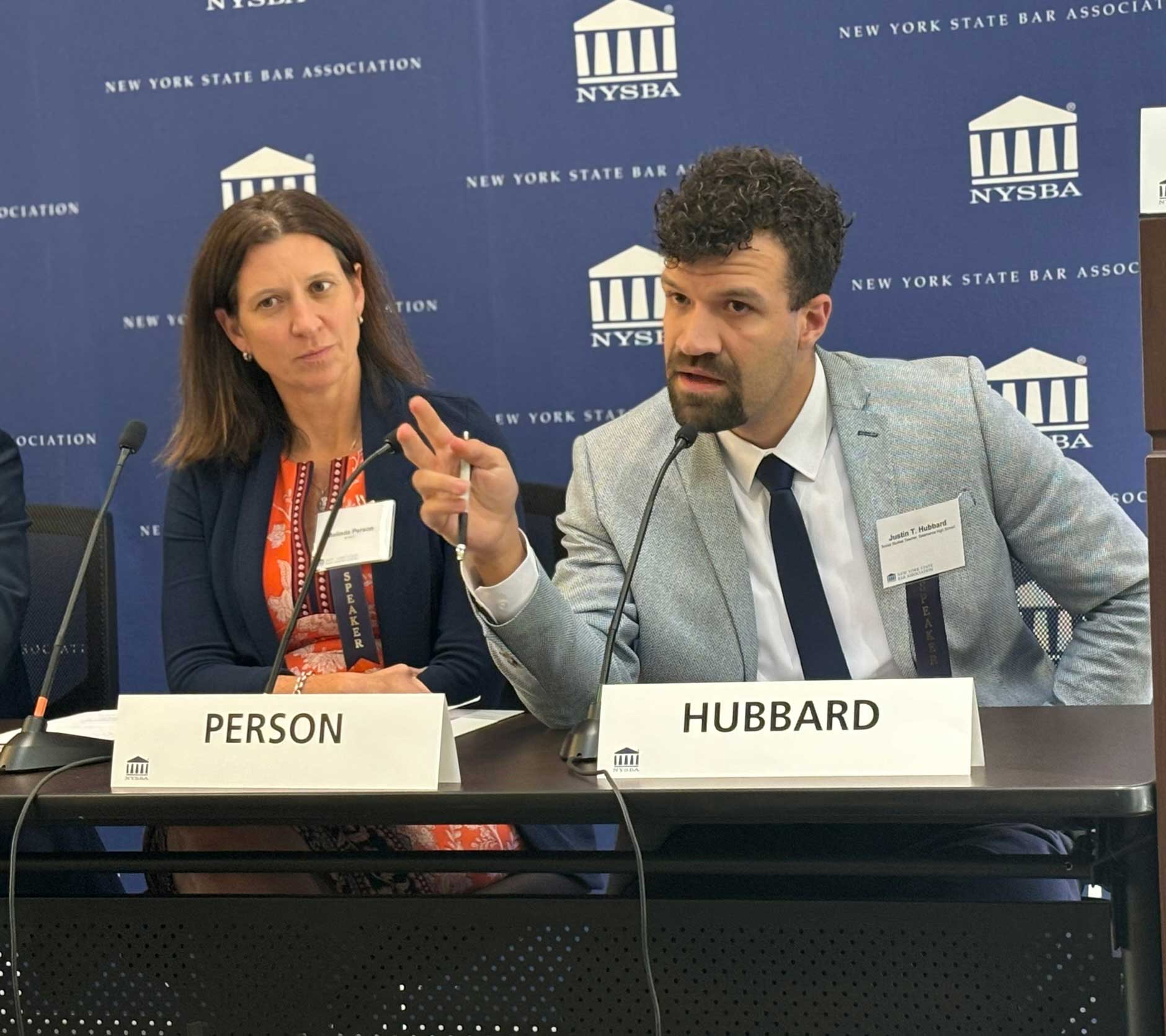As civility in politics vanishes, trust in our nation's long-standing institutions wanes and rhetoric reaches a fever pitch, lawyers and judges made the case that education may well be the antidote to what ails us in the first ever civics education convocation, “To Safeguard our Democracy.”
The event was held at the New York State Bar Association in early May, and featured the voices of elected leaders, NYSUT President Melinda Person, NYSUT members, students, and a video address by Supreme Court Justice Hon. Sonia Sotomayer.
“It’s not hyperbole to state our rule of law is under threat and our democracy is imperiled,” New York State Bar Association President Richard C. Lewis told the audience. “Only 20 percent of Americans believe they can rely on their government to do the right thing.”
Even as fear and intimidation dog our progress, Lewis and the other panelists emphasized that civics education has never been more relevant – or critical to our future.
“Democracy is taught one generation at a time,” said NYSUT President Melinda Person. Since 2021, she noted, eighteen states have passed legislation limiting what educators can teach and denouncing many historical and social content areas as “divisive concepts,” which has created a culture of fear in the classroom and led many teachers to self-censor because they are scared for their jobs – or worse. “We have seen educators publicly shamed, called names, and even receive death threats, when all they’re doing is telling the truth,” Person said.
Other speakers expressed their concern about the dominant cynicism toward politics and democracy they are witnessing in classrooms.
“We adults have not done a very good job at solving the world’s problems,” said Supreme Court Justice Sonia Sotomayor, who answered questions from 10 high school and college students and explained that building a better world often boils down to finding ways to help your fellow citizens.
“You have a chance with your energy and your ideas to imagine a better world than the one we have created,” Sotomayor said. “You can only do that by education, by learning about civics, by learning about your government and how you can affect change.”

“I think most of the time when I look at government, when I look at television, I see government as very discouraging, as something that stops change,” said Justin Hubbard, social studies teacher and member of the Salamanca Teachers Association.
At Salamanca, Hubbard teaches his students the exact opposite – that advocacy and activism can enact substantial changes on issues they care about, even when it comes to something as seemingly inaccessible as the federal government.
Hubbard was one of the first teachers to pilot the new seal of civic readiness program, and his efforts earned him an American Civics Education Teacher Award in 2022. Hubbard uses his civics education class as a tool for empowering students and elevating their voices.
In 2021, Hubbard’s students helped get the small rural district in Cattaraugus County to raise the Progress Pride Flag outside the high school. Hubbard said it was an effort that took countless meetings with school administration and classmates, all solidly led by students. The issue included some difficult interactions with the community, but as advisor to the Salamanca Student Activists Club, Hubbard is fond of reminding his young changemakers that sometimes their job is to “disturb the comfortable and comfort the disturbed.”
Hubbard has also consistently made space for his students to speak their minds on the issues that matter most to them – whether they be school violence, opioid addiction, cyberbullying, Black Lives Matter or Missing and Murdered Indigenous Women.
“Sometimes, I don’t need to say anything at all on these topics because the students have more knowledge than I do,” Hubbard said. “They’ve been swimming in these issues for years.”
Salamanca is built on land leased from a Native American reservation and more than a third of the students in the district are members of the 8,000-member Seneca tribe. The Seneca are part of the Iroquois Confederacy, or the Haudenosaunee, which represents the oldest continuous Democracy in the world, Hubbard said.
Elevating student voices and centering their experiences has meant that students are encouraged to wear their Native American regalia to the national capitol during their annual trip to Washington, D.C. and to speak in their native language, he said.
“We won’t have a future if we don’t teach our students civics education and protect our democracy,” Hubbard concluded.